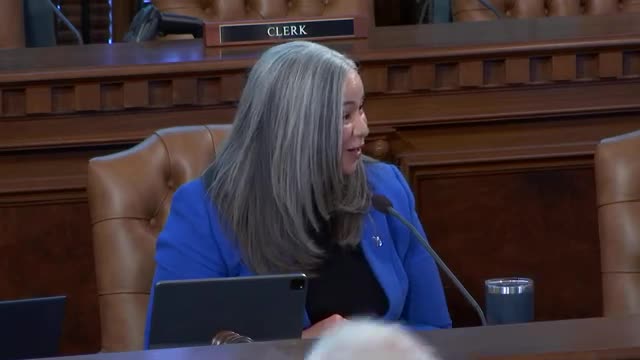University of Michigan survey: consumers’ expectations improve unevenly; lower‑income households remain vulnerable
Get AI-powered insights, summaries, and transcripts
Subscribe
Summary
The University of Michigan Surveys of Consumers reported improved aggregate sentiment since 2022 but said gains are concentrated among higher‑income households; the survey flagged renewed concern that proposed tariffs could push up future prices and spur pre‑emptive buying.
Dr. Joanne Hsu, director of the University of Michigan Surveys of Consumers, told the Consensus Revenue Estimating Conference that overall consumer expectations have improved substantially since the mid‑2022 trough but that the recovery in sentiment has been uneven across income groups.
Hsu said higher‑income households have experienced the largest improvement in sentiment—driven in part by gains in asset values—while lower‑income households have seen only modest gains. “A lot of consumers are very, very concerned about a resurgence of inflation,” Hsu said, noting that concern about future price increases has been rising since the November election and that those expectations are shaping some current purchasing decisions.
Hsu reported that the survey’s year‑ahead inflation expectation series rose in the most recent release and that the share of respondents spontaneously mentioning tariffs as a concern jumped after the election. She warned that if households expect future price increases and accelerate purchases, short‑run demand could push prices higher even before any tariff policy takes effect.
The survey also finds that while aggregate consumer spending has been robust, much of that demand has been driven by higher‑income households whose wealth gains (stocks and housing) allow larger discretionary spending. Hsu said delinquencies and pandemic‑era savings depletion are showing up for lower‑income households, producing localized vulnerabilities even as aggregate numbers remain resilient.
Hsu recommended that forecasters monitor (1) wage and labor‑market trends that underpin consumers’ ability to spend; (2) evolving inflation expectations tied to policy signals; and (3) whether recent vehicle sales increases reflect genuine demand or advance buying ahead of anticipated price increases.
Ending: Hsu said the trajectory of labor markets and clarity on trade and tax policy will be the primary determinants of how spending and expectations evolve in 2025, and that survey signals should be watched for signs that expectations themselves could become inflationary.
